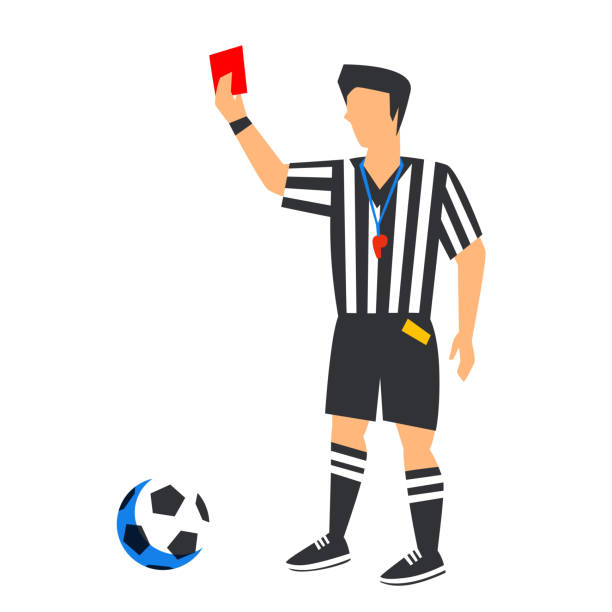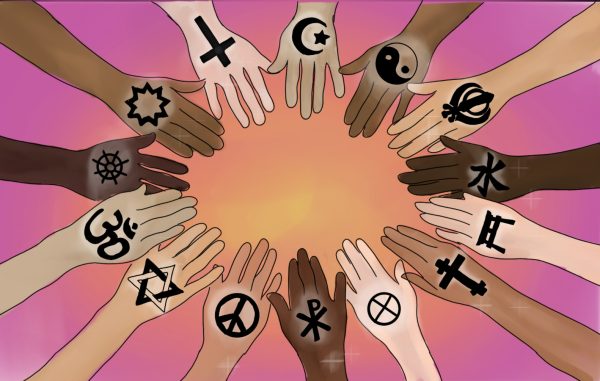The Wondrous World of Sport Officiating
September 7, 2022
Sweat trickles down your forehead as you sprint towards the goal.
Adrenaline rushing through you as you look to achieve glory for your team.
Your leg cocks back as you begin to strike the ball.
Sharp pain in your right calf as you feel the contact of the oncoming defender.
You fall face-first into the muddy ground right in front of the goal.
And of course… no call from the referee.
Your burst into a rage as you blame the referee’s single decision for the loss of your team’s entire season.
Refereeing – perhaps one of the most abuse-prone jobs there are, making decisions in an attempt to control sporting matches, often to no avail. I’m sure anyone who has ever played a sport has some experience of disdain towards a referee – and reasonably so in many cases. In my three years as a soccer referee, I’ve had my fair share of abuse, funny moments, and moments that were astonishing to watch – either in their skill or their extravagantly hilarious lack thereof. From games with all-in fights to multiple own goals to fellow referees falling over – there’s so much I’ve seen in my three years and I’m sure that there’s plenty more to come.
Just last weekend, I got to experience my first time refereeing a grand final! It was a great weekend for everyone involved, with exciting, high-tension matches, screaming at the referees, free food, and presentations for the hard work of the players and the officials.
During this grand final weekend, I experienced something that perhaps opened my eyes to how the players view referees.
I was in the centre for an under 13’s game – not a particularly hard game to referee, but nonetheless, a game that was heated and contentious, as all grand finals games are. The game ended at 1-0, and the only goal of the game was scored by some miracle in the 30th second, with a dry game from thereon out.
With about 10 minutes left, a player from the losing team made a run to receive a cross and got a touch to the ball to make a run for goal, where I saw that my assistant referee had raised his flag to indicate offside. I stopped play, and as I did, another player on the team seemed to have a complete outburst of rage. While he was not the one who had the offence called against him, he turned to me and screamed as loud as someone his age could about how the call I had made was unfair, while he likely didn’t actually know what the call was even for.
I appropriately responded with a yellow card for this outbreak, and my heart dropped as he began to break down into tears. At this moment I realised his screaming at me was not to express disdain for me or even my decision, but rather at his own team’s failure – he was more upset about his team losing such a high-intensity match and had to take it out on me, whether the decision was correct or not. In that, I realised that as the decision-makers of the game, the referees become the logical target of any dissent or disagreement.
Here are some of the key takeaways that I’ve learned from my time as a referee so far.
1. Referees make mistakes – and that’s okay.
Referees are in a position where mistakes are not something to play around with. While a player in a game can make plenty of mistakes, missed touches, bad passes and horrendous shots, a single mistake from the referee can jeopardise the entire game. A single bad call from a referee can take the game from calm and peaceful to supposedly ‘one-sided’, and everything can spiral out of control from there. Even with how crucial it is to not make mistakes as a referee, what really impacts the game is how the referee handles the situation. Even the best referees will make a mistake every once in a while, but what differentiates them from your average club referees is how they can contain the emotions of the players on the field to facilitate a smooth-running game.
2. Over 35 Men are the worst age group in existence.
When it comes to refereeing, the games are split into different age groups. By far the worst age group that I have refereed as an assistant are the over 35 men. You might think that the more mature men would have a better sense of how to contain their emotions and remain calm – you would be sorely mistaken. Some of the things that make the over 35’s absolutely atrocious are:
- Their loudmouth-ness: The over 35 men will have no problem in vocalising how bad your call was, in almost any circumstance. They’ll yell and swear at the other team, and usually at their own team as well (which generally isn’t too helpful when it comes to winning the game).
- The lack of physical ability: By the time these men are reaching their 40s, their physical health begins to wane and lowers below what it once was at their prime in their 20s. A lot of the over 35’s like to think that they still have the same physical health as they did 15-20 years ago and end up absolutely burned out and angry at everything. This lack of physical ability also makes them particularly bad at tackling, where they often result to illegal means of tackling to gain possession of the ball – leading to a free kick which they will then proceed to blow up about.
- The overestimation of skill: The over 35 men are always in a mentality that they deserve more. A lot of them like to think that they have the same ball and tackling skills as they did in their 20s, which they absolutely do not have. This leads to some hilarious moments where they end up tripping over themselves or the ball, and yet, the blame somehow will get shifted to the ref.
3. There is often no such thing as a correct call
Of course, in most cases, there is an objectively correct decision when it comes to things like a throw-in, goal kick, or a handball. When it gets to things like pushing and tripping, the decisions become a bit more subjective and might change depending on the standards of the referee. However, no matter what the decision is, there will always be a player somewhere on the field, a coach in the technical area, or a spectator 100m away in the stands who could barely see the ball that disagrees with your decision.
Across everything that happens when refereeing, I still really enjoy it. For a kid my age, it’s a great experience that is rewarding, fun, and oftentimes chaotic. Despite how everyone (including myself in this article) often talks about the downsides and abuse of such a task, it’s a great thing to be able to do. I look forward to my years of refereeing to come and highly recommend that you give it a go yourself if you play any sports.












